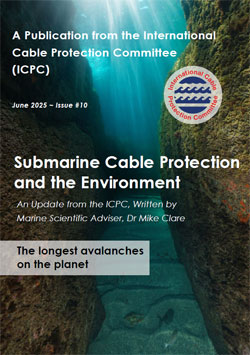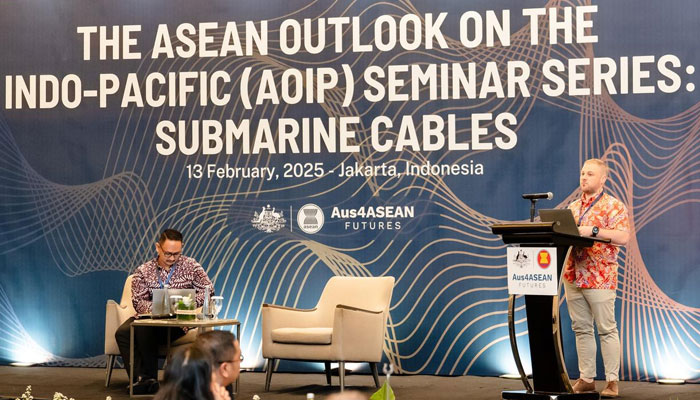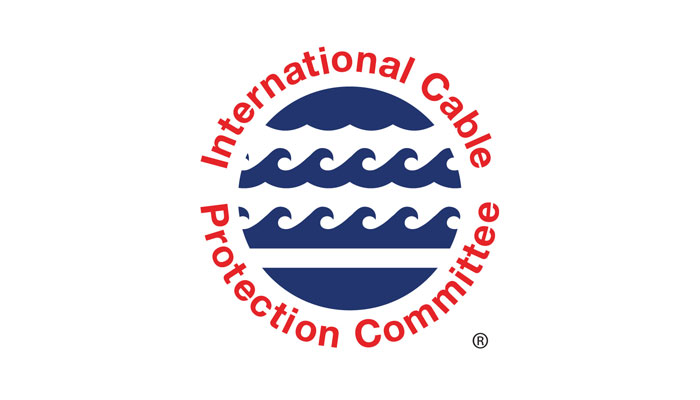News Release: Launch of International Advisory Body to Support Resilience of Submarine Telecom Cables'Strengthening resilience of submarine cable networks is key to digital connectivity and economies
The International Telecommunication Union (ITU), the United Nations Agency for Digital Technologies, and the International Cable Protection Committee (ICPC), the leading industry organisation promoting submarine cable protection, have formed the
International Advisory Body for Submarine Cable Resilience to strengthen the resilience of this vital telecommunication infrastructure.
Submarine telecommunication cables form the backbone of global communications, carrying most of the world's Internet traffic and enabling critical services across the globe, including commerce, financial transactions, government activities, digital health and education.
The Advisory Body will address ways to improve cable resilience by promoting best practices for governments and industry players to ensure the timely deployment and repair of submarine cables, reduce the risks of damage, and enhance the continuity of communications over the cables.
“Submarine cables carry over 99 per cent of international data exchanges, making their resilience a global imperative," said ITU Secretary-General Doreen Bogdan-Martin. “The Advisory Body will mobilize expertise from around the world to ensure this vital digital infrastructure remains resilient in the face of disasters, accidents, and other risks."
Recognising the vital role of subsea infrastructureDamage to submarine cables is not uncommon, with an average of 150 to 200 faults occurring globally each year and requiring about three cable repairs per week, according to the ICPC.
The primary causes of damage include accidental human activity, such as fishing and anchoring, alongside natural hazards, abrasion and equipment failure.
“The formation of this International Advisory Body with ITU marks another step toward safeguarding our global digital infrastructure," said ICPC Chair, Graham Evans. “By working together, we can promote best practices, foster international collaboration, and create a consistent approach to protect the vital submarine cable networks that underpin global connectivity."
Supporting digital resilience globallyThe Advisory Body's 40 members include Ministers, Heads of Regulatory Authorities, industry executives, and senior experts on the operations of telecommunication cables.
Members come from all world regions, ensuring diversity and inclusion from countries ranging from small island states to major economies. The membership captures the perspectives of those whose livelihoods and digital futures depend on the operation of submarine telecommunication cables, as well as those who work to deploy, maintain and protect this vital infrastructure.
The Advisory Body is co-chaired by H.E. Minister Bosun Tijani, Minister of Communications, Innovation and Digital Economy of the Federal Republic of Nigeria, and Prof. Sandra Maximiano, Chair of the Board of Directors of the National Communications Authority of the Republic of Portugal (ANACOM).
“Submarine cables are essential to the functioning of our connected world, but they face risks that require coordinated, proactive action," said Tijani. “Therefore, we are happy to host the inaugural Submarine Cable Resilience Summit to be held in Nigeria in early 2025."
"This initiative underscores the global community's commitment to strengthening these networks and advancing international cooperation for digital resilience," said Maximiano.
The Advisory Body will meet at least two times a year. It will consult with experts on telecommunications, digital resilience infrastructure development, infrastructure investment and international policy to provide strategic guidance and encourage sector-wide collaboration.
The first virtual meeting is scheduled for December 2024. The first physical meeting is currently scheduled to take place during the Submarine Cable Resilience Summit, planned for late February 2025 in Abuja, Nigeria.
Read the full news release here.











